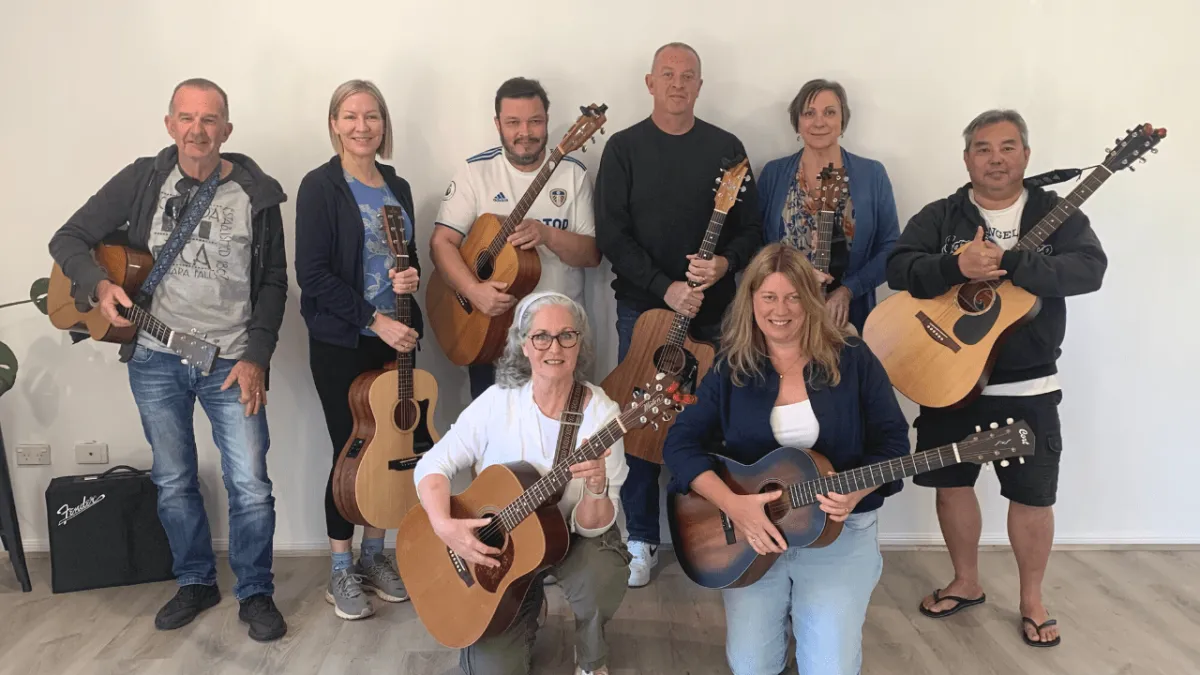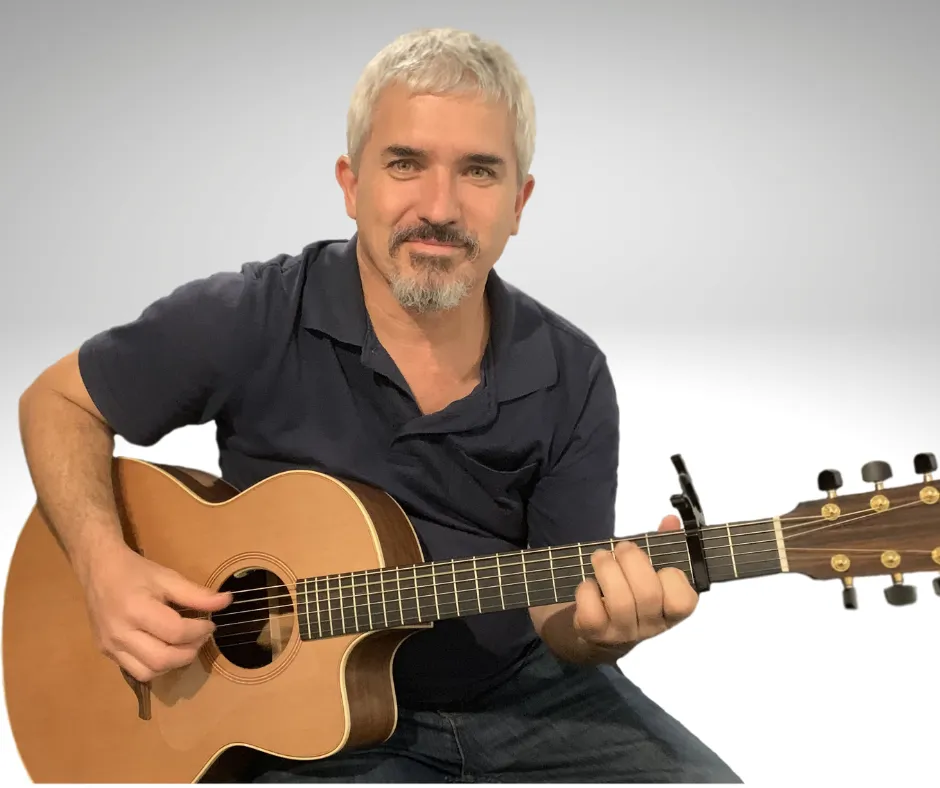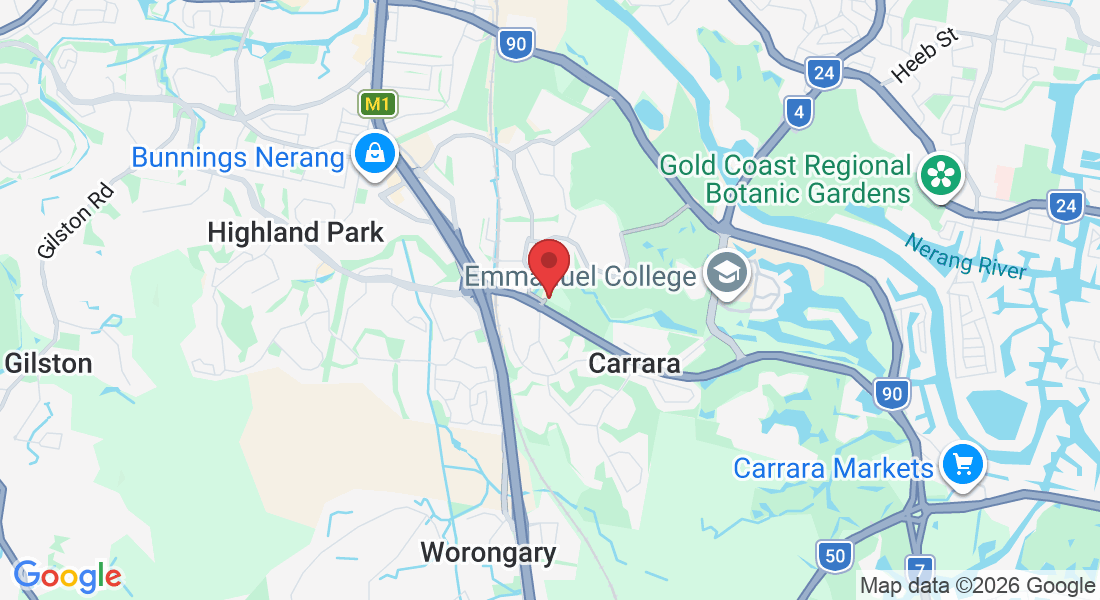Adult Guitar Lessons in Gold Coast | Group Guitar Classes for Adults
Welcome to The Campfire Club
90-minute weekly group guitar sessions for adults who want connection, creativity, and confidence.
Presented by Gold Coast School of Guitar

What is The Campfire Club?
Most adults dream of playing guitar — not to perform on stage, but to feel connected, creative, and confident.
The Campfire Club was built for that exact purpose.
It's a weekly 90-minute escape where you unplug from your day and plug into something real: rhythm, community, and iconic songs that actually mean something to you.
Each week, you’ll join a small group of like-minded adults in a welcoming, zero-pressure environment.
We work through 12-week themed arcs, focusing on 3–4 timeless songs you’ll actually want to play.
Sessions blend practical skill-building with immersive group playing — all tailored to different levels so everyone progresses at their own pace.
This isn’t just a guitar class — it’s the best part of your week.
It’s structured, social, and soulfully curated.
With 90-minute sessions, thoughtful instruction, and a calm, cozy atmosphere, you’ll build real skill while having more fun than you thought possible.
What You'll Get
Weekly 90-minute group sessions in a relaxed, social setting
Rotating 12-week themed curriculum (e.g., Campfire Classics, 90s Strummers)
Flexible attendance – choose from multiple weekly time slots
No music theory required – just learn the songs you love
Plus...
Supportive adult-only community
All materials included

Allen Hopgood - Founder of The Campfire Club — helping adults to finally play songs they love.
Try A Free Session
Come sit in on a session and see how it feels. All you need is you and your guitar.
It’s totally free for your first visit, no pressure at all.
Frequently Asked Questions
Do I need experience?
No! Beginners are welcome. We layer instruction to suit different skill levels
What if I miss a class?
No problem. Sessions run multiple nights per week and cover the same material each week.
Can I cancel anytime?
Yes — it's a rolling monthly membership. Just let us know before your next billing cycle.
Do I need my own guitar?
Yes, but we can recommend great starter options
What Members Are Saying

Phil Green

"The sessions are easy as they are straight forward, step by step instructions."

Lisa Seredycz

"It's very easy. Very achievable.. even my husband could do this (and he doesn't even play!)"

Geoff Morgan

"A really easy way to learn new songs!"
Ready to See What It's Like?
Spots are limited. Book a free session now and see how it clicks. All you need is you and your guitar.
Get In Touch
Gold Coast School of Guitar
Email: [email protected]
Address
Studio: 1 Greenbank Circuit, Carrara QLD 4211
Phone Number:
0448 620 966
Play Real Songs. With Real People. At The Campfire Club.
The Campfire Club is the flagship group experience by Gold Coast School of Guitar — offering premium adult guitar lessons in Carrara and the surrounding Gold Coast suburbs. Small-group, acoustic-focused sessions for adults 40+ who want connection, confidence, and creative escape through music. Serving Carrara, Nerang, Merrimac, Worongary, Ashmore, Highland Park, and more
© 2026 Gold Coast School of Guitar | Home of The Campfire Club

